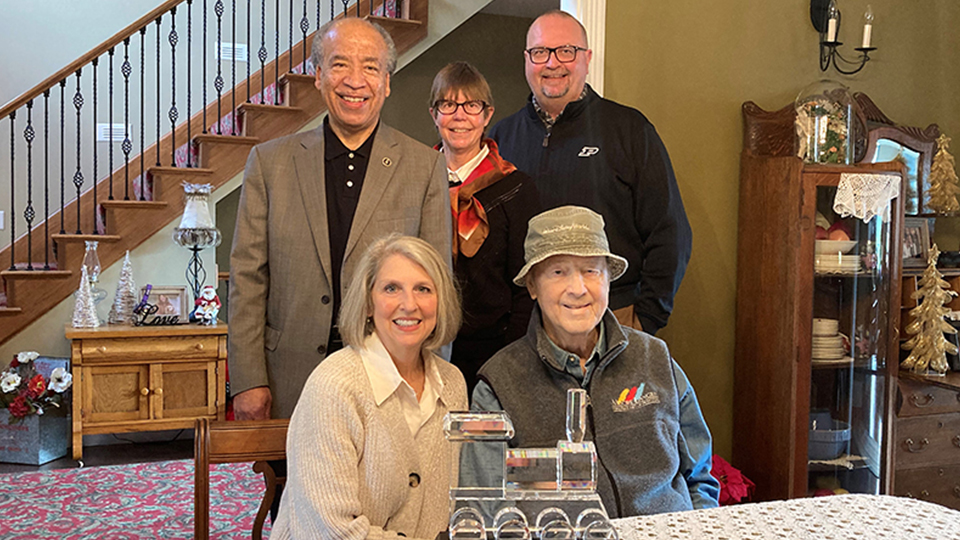$10M gift to support cancer research for people and pets
Subscriber Benefit
As a subscriber you can listen to articles at work, in the car, or while you work out. Subscribe Now
A Brown County couple with a longstanding relationship with Purdue University has given the school a $10 million gift to advance cancer research for both humans and pets. The funding from Evan and Sue Ann Werling will help with the establishment of the Comparative Oncology Research Center named in their honor.
The center, which is part of the Purdue College of Veterinary Medicine, will partner with the Purdue Center for Cancer Research.
The board of trustees has approved naming the research center after the Werlings because of their substantial donation.
“Evan and Sue Ann’s generous gift will help transform the research potential of Purdue’s dedicated scientists,” said Willie Reed, dean of the College of Veterinary Medicine. “We’re thankful for their long-standing and valuable partnership as we pursue giant leaps in comparative oncology.”
The money will not only establish the new center, but it will also provide unrestricted support for promising cancer research and clinical trials.
Purdue says the center will conduct high-impact research in pets with naturally occurring forms of cancer, which mimic those same forms in humans.
“Most pet owners have human family members and friends who have been afflicted with cancer. Therefore, they are excited that we may learn something important from their pet that will ultimately help humans at the same time we help their pet,” said Deborah Knapp, director of the Purdue Comparative Oncology Program.
Werlings’ dog Brandi was diagnosed with bladder cancer in 2005. She was enrolled in two studies at Purdue that extended her life. The care inspired the couple to create an endowment for canine cancer research at Purdue in 2020. The new gift builds upon that effort.
“Advances in cancer treatments are identified through research, and Purdue is one of the finest research institutions,” said Evan Werling. “We hope the university will be able to expand the early detection of cancers so we can identify them before they’re untreatable.”
